
Comparative Analysis
Osho vs. Nietzsche (Freedom and Individuality): Osho promotes spiritual freedom through meditation, while Nietzsche’s “will to power” focuses on individuality without spiritual elements. Osho’s enlightenment contrasts with Nietzsche’s “Übermensch” concept.
Osho and Freud (Mind vs. Consciousness): Freud’s psychoanalysis revolves around the unconscious mind and repression, while Osho emphasizes transcending the mind entirely to achieve self-realization, focusing on consciousness.
Spirituality vs. Materialism: Osho combines spirituality and material enjoyment, promoting the concept of “Zorba the Buddha.” Nietzsche criticizes religion and spirituality, focusing on earthly experience and self-overcoming through reason.
Osho vs. Traditional Eastern Philosophy: Osho’s teachings align with Eastern traditions like Buddhism and Hinduism, but he adapts these concepts for a modern audience, often critiquing traditional spiritual practices for being overly rigid.
Osho on Love vs. Freud’s Sexuality: Freud views human motivation through a lens of sexual energy (libido), while Osho speaks of love as a transformative spiritual force that transcends mere physicality.
Critique of Rationalism (Osho and Western Thought): Osho critiques Western rationalism and scientific thought, suggesting that spirituality transcends intellect. Thinkers like Descartes emphasize reason as central, contrasting with Osho’s focus on inner consciousness.
Osho and Existentialism: Existentialists like Sartre argue that life has no inherent meaning, and we must create our own. Osho acknowledges this but adds that meaning can be found through meditation and self-awareness.
- Ego and Transcendence: Osho emphasizes the dissolution of the ego through meditation to achieve a higher state of being. Philosophers like Freud and Nietzsche see the ego as an essential part of human development or power.

- Osho and Zen Buddhism: Osho draws heavily from Zen, advocating direct experiences of enlightenment, much like Zen’s rejection of intellectualization. However, Osho modernizes and broadens this for contemporary spiritual seekers.
- Criticism and Skepticism: Many Western philosophers criticize Osho’s mystical approach as lacking scientific rigor, while Osho counters that true knowledge and wisdom lie beyond rational thought.


The Path of Zorba the Buddha : Insights from Osho

Celibacy vs Sex Philosophy of Osho

God is Dead?

Navigating Emotional Complexity in Sexual Relations for Spiritual Growth

Osho’s Philosophy: A Cautionary Perspective

The Myth of Superconsciousness: Beyond Sexual Experiences
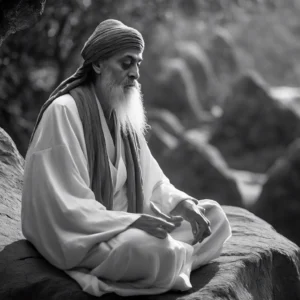
Misinterpretations of Osho’s Philosophy: The Debate on Sexuality and Spiritual Growth
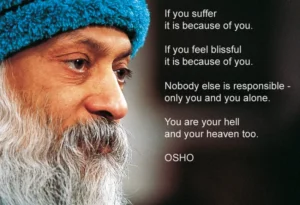
Celibacy in Religious Traditions and Osho

Osho’s Views on Polygamy and Monogamy

Exploring Osho’s View on Monogamy and Polygamy
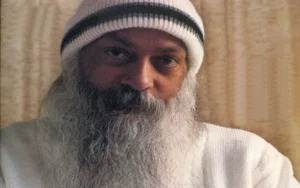
The Paradox of Pursuing Travel by Bhagwan Rajneesh
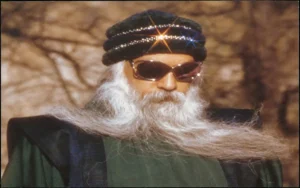
The Global Visa Rejection of Bhagwan Rajneesh

Jesus saves, Moses invests, Bhagwan spends

Third Psychology: Osho’s Influence and Insights

Rajneeshism: Origins and Impact

Thoughtless awareness and contentless consciousness
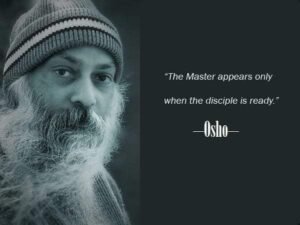
Osho educational philosophy

Education and Personal Development: The Pathway to a Fulfilling Life

Exploring Osho’s “Ek Onkar Satnam”: A Journey into Spiritual Unity and Inner Truth
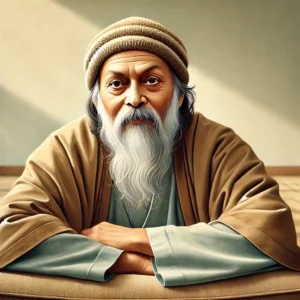
Breaking Chains: Osho’s Vision of Spirituality Beyond Guilt and Repression

ओशो के दृष्टिकोण में भाषा और धर्म का संबंध

Exploring the Highlights of ‘Jeevan Ki Khoj’ by Osho

AI and Consciousness and Awareness

Understanding Osho’s Perspective on Govardhan Puja

The Silent Cry of Our Parks: A Plea for Attention

psychedelics and spirituality

Family evolution : From Joint Families to Nuclear Units

Over 80 years old
